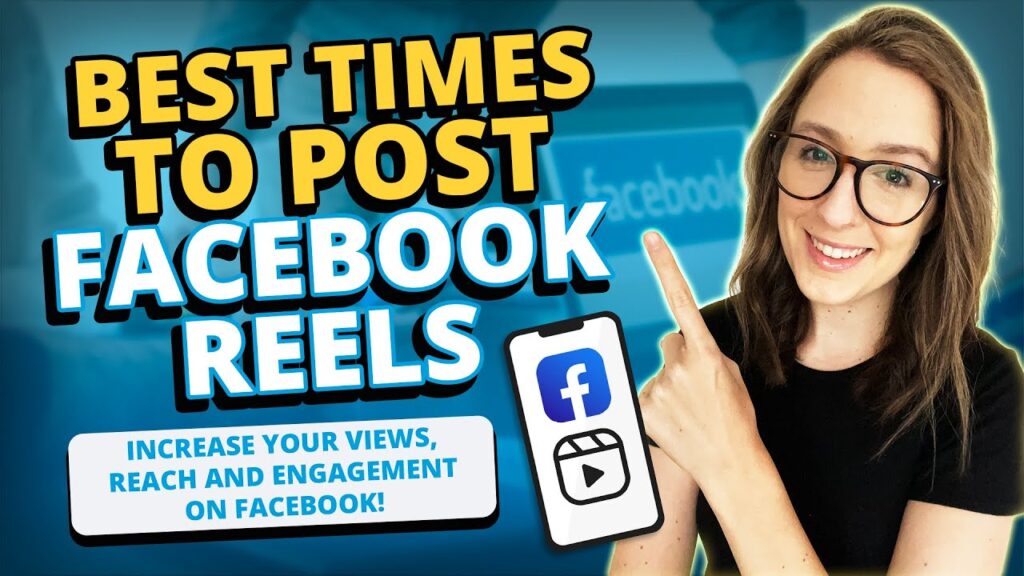Facebook privacy policy provides guidelines on how the company collects, uses, and shares user information. Facebook collects user data to personalize the user’s experience and improve its services.
Over the years, facebook has faced various privacy controversies regarding its data handling practices. The company has been accused of violating user privacy rights by collecting user data without their knowledge or consent and sharing it with third-party firms. These accusations have led facebook to adopt a new privacy policy to ensure transparency and accountability in its data handling practices.
In this article, we will examine facebook’s privacy policy, its guidelines, and the measures it has taken to safeguard user privacy. We will also provide recommendations on how to safeguard your personal information while using facebook.

Credit: www.goal.com
Facebook’S Data Collection Practices
Overview Of Facebook’S Data Collection Practices
As a social networking site, facebook collects vast amounts of user data to optimize its services, provide personalized content and advertisements, and enhance user experience. However, the sheer volume of data facebook collects has provoked concerns about privacy and security.
Some of the critical points to understand about facebook data collection practices are:
- Facebook collects information from users’ profiles, content they post, comments they make, friends they have, pages they follow, and groups they join.
- Facebook also gathers data from third-party apps and websites that use facebook products to enable user interaction with facebook or display customized ads on other platforms.
- Facebook regularly tracks users’ activities on and off its platform using tools such as facebook pixel and sdks embedded in apps and websites.
Types Of Data Collected By Facebook
Facebook’s data collection covers diverse categories of user data, including personal information, demographic information, behavioral data, and device information. Some of the specific types of data facebook collects are:
- Basic personal information such as name, email, phone number, gender, and birthdate.
- Usage data such as login frequency, time spent on the site, pages visited, likes and reactions, comments, and shares.
- Device information such as device type, operating system, browser type, location and ip address.
- Information from third-party sources such as advertisers, app developers, data brokers and public records.
Examples Of Data Collected By Facebook
To provide deeper insights into facebook’s data collection practices, here are some specific examples of the type of information facebook collects:
- Location data from the user’s mobile device, which can help facebook to provide location-based services such as weather and news recommendations or targeted ads for local businesses.
- Browsing behavior information, such as websites visited, search history, and ads clicked, which can enable facebook to personalize ads and content.
- Voice and facial recognition data, which is used to enhance user experience on video and voice chat and recognition tools for tagging friends.
- Health-related information, such as health-related search queries or posts, which facebook collects to serve targeted ads.
The Impact Of Facebook’S Data Collection On User Privacy
Facebook’s data collection practices have raised concerns about the privacy and security of user data, as well as their potential impact on user behavior, mental health, and democracy. Here are some potential impacts of facebook’s data collection on user privacy:
- Data breaches that expose sensitive user information to malicious actors.
- Third-party apps and website abuses that collect and misuse user data without their consent, such as the cambridge analytica scandal.
- Advertisements that target users based on sensitive information, such as health conditions or personal beliefs.
- The potential for users to change their behavior on the platform to avoid revealing sensitive information, such as self-censorship or disengagement.
- The risk that facebook’s data collection practices could exacerbate social inequalities by profiling users based on their race, gender, and other protected characteristics.
Facebook’S Privacy Settings
Explanation Of Facebook’S Privacy Settings
Facebook is a social media platform that allows users to connect and share their lives with friends and family. However, being active on the platform also requires being aware of the privacy settings that can control the visibility of personal information.
Here are some key points about facebook’s privacy settings:
- Users can adjust their privacy settings to determine who can view their profile, posts, and friends list.
- Facebook’s default privacy settings often prioritize visibility over privacy, so it’s essential to review and adjust settings regularly.
- Privacy settings can also determine how users are found on the platform and who can send friend requests.
How To Access And Modify Facebook Privacy Settings
To access and modify facebook’s privacy settings, follow these steps:
- Click on the account menu at the top right of the facebook home page.
- Select “settings & privacy” from the dropdown menu.
- Click “settings” to access the privacy settings page.
- From here, users can select “privacy checkup” to review and adjust who can see their posts and profile information.
- Users can also select “activity log” to view and manage past activity and who can see it.
- The “timeline and tagging” settings allow users to control who can post on their timeline and who can tag them in posts and photos.
Common Misconceptions About Facebook’S Privacy Settings
There are many misconceptions about facebook’s privacy settings, including:
- Changing privacy settings can impact how posts appear in the news feed, but it doesn’t impact how they are viewed by specific individuals.
- Facebook doesn’t always notify users when their information is accessed by apps or third-party websites.
- Posting content publicly or in a public group can potentially allow anyone on the internet to access it.
- Being tagged in a post or photo can impact who sees it, even if the original poster has strict privacy settings.
Tips For Maximizing User Privacy On Facebook
While facebook’s privacy settings can be confusing, there are several tips users can follow to ensure maximum privacy:
- Review and adjust privacy settings regularly to ensure the desired visibility of personal information.
- Avoid posting sensitive information, such as addresses or phone numbers, publicly or in public groups.
- Be cautious when granting permissions or installing apps that request access to personal information.
- Use the “activity log” to review and delete past activity that shouldn’t be visible to certain audiences.
- Consider limiting friend lists to close friends and family to control who sees posts and profile information.
By following these tips and taking the time to review and adjust privacy settings regularly, facebook users can enjoy the benefits of the platform while also maintaining control over personal information and privacy.
Facebook And Third-Party Applications
Overview Of Facebook’S Connection With Third-Party Applications
Facebook has a vast network of third-party applications that integrate with its platform. These applications gather data from facebook users to provide services such as video streaming, gaming, and shopping. Facebook connects with third-party applications through its application programming interface (api).
This gives the developers of these applications access to certain user data, with the user’s consent.
How Third-Party Applications Collect Data From Facebook Users
Third-party applications collect data from facebook users by requesting access to certain information. This could include the user’s name, profile picture, email address, friends list, and other public information. When a user interacts with a third-party application, it may also collect data on the user’s activity, such as the videos they watch or the products they buy.
These applications use this data to personalize the user’s experience within the application or to serve targeted ads.
The Risks Associated With Third-Party Applications And User Data
There are several risks associated with third-party applications and the data they collect from facebook users. These applications may misuse user data by selling it to third-party advertisers or using it for fraudulent activities. They may also inadvertently expose the user’s data through security breaches or data leaks.
Additionally, some applications may collect more data than necessary, putting the user’s privacy at risk.
Steps Facebook Takes To Protect User Data Shared With Third-Party Applications
Facebook takes several steps to protect user data shared with third-party applications. Firstly, it requires all third-party developers to comply with its platform policies and terms of service. This includes ensuring that the developer has obtained adequate consent from the user before accessing their data.
Secondly, facebook regularly monitors third-party applications for compliance and investigates any complaints from users. Additionally, facebook has implemented stricter apis that limit the amount of data developers can access. Finally, facebook has partnered with trusted third-party organizations to provide independent audits of their data practices.
Facebook’S Advertising Practices
Overview Of Facebook’S Advertising Practices
Facebook has become an incredibly important tool for businesses to reach customers. As such, facebook has an extensive advertising program that allows businesses to place ads in front of users based on their facebook activity and other data. Here’s an overview of facebook’s advertising practices:
- Facebook offers a range of ad formats, including image, video, and carousel ads.
- Advertisers can target ads based on location, age, gender, interests, behaviors, and more.
- Facebook also offers a “lookalike audience” feature, which helps businesses find new customers who are similar to their existing audience.
- Advertising on facebook is typically done through a biding system, where advertisers compete to have their ads displayed to a particular audience.
Explanation Of How Facebook Uses User Data For Advertising
One of the most important ways that facebook targets ads is by using user data. Facebook collects a huge amount of data on its users, including their location, age, gender, interests, and behaviors. This data allows facebook to show ads to the users who are most likely to be interested in them.
Here’s how facebook uses user data for advertising:
- Facebook uses data such as likes, shares, and comments to understand users’ interests and behaviors.
- Facebook also collects data on which websites users visit and what they search for online.
- Advertisers can upload their own customer data to facebook, which facebook can use to target ads to those customers.
- Facebook uses machine learning algorithms to determine which users are most likely to be interested in a particular ad.
How To Control The Ads You See On Facebook
If you’re concerned about the ads you’re seeing on facebook, there are several ways to control them. Here’s how to control the ads you see on facebook:
- You can use facebook’s ad preferences tool to see which interests facebook is using to target you with ads. You can remove interests that are no longer relevant or add new interests to help facebook show you more relevant ads.
- You can opt out of seeing ads from certain advertisers or in certain ad formats.
- You can choose to see fewer ads from certain types of advertisers, such as those who use a lot of video ads.
- You can choose to see ads that are not based on your interests.
The Impact Of Facebook’S Advertising Practices On User Privacy
The extensive use of user data in facebook’s advertising practices has raised concerns about user privacy. While facebook has taken steps to make its advertising practices more transparent and give users more control over the ads they see, some users may still be uncomfortable with the amount of data that facebook collects.
Here are some potential impacts of facebook’s advertising practices on user privacy:
- Users may feel uncomfortable with the amount of data that facebook collects on them.
- Facebook’s advertising practices may contribute to the spread of misinformation or harmful content.
- The use of machine learning algorithms in facebook’s advertising practices raises questions about algorithmic bias.
Frequently Asked Questions On Facebook Privacy Policy
What Is The Facebook Privacy Policy?
Facebook privacy policy outlines the ways facebook collects, uses, and shares user data. It also explains users’ rights over their data and what happens when the policy is violated.
How Does Facebook Use My Data?
Facebook uses data to personalize users’ experiences, show them relevant ads, and improve the facebook platform. Data is also used to keep users safe and promote positive interactions.
Can I Control Who Sees My Information On Facebook?
Yes, facebook allows users to customize their privacy settings to control who sees their profile, posts, and other information. Users can also choose not to share certain information at all.
Does Facebook Share My Data With Third Parties?
Yes, facebook may share user data with third parties for various reasons, such as for advertising purposes or to conduct research. However, facebook takes measures to protect user privacy and gives users control over their data.
How Can I Report A Privacy Violation On Facebook?
Users can report privacy violations on facebook through the site’s help center. Facebook takes user privacy seriously and investigates reports of policy violations promptly.
Is Facebook Committed To Protecting User Data?
Yes, facebook has a responsibility to protect user data and has taken steps to improve data security and privacy. The company invests in teams and technology to keep users safe on the platform.
Conclusion
Facebook’s privacy policy is crucial to maintain users’ trust and keep their personal information safe. By providing users with greater control over their data and how it is being used, facebook aims to create a more secure and transparent platform.
While there may always be concerns about data privacy and breaches, it’s essential to remember that facebook is committed to regularly updating and improving its policy to protect its users. As a user, it’s important to take advantage of the various privacy settings available and to stay informed about any updates to the policy.
At the same time, it’s equally critical for facebook to continue to prioritize the privacy and security of its users. By maintaining an open, transparent, and ethical approach to data collection and use, facebook can continue to strengthen user trust and confidence in its platform.



